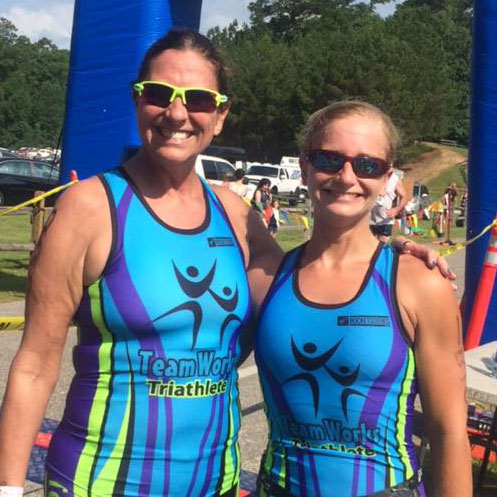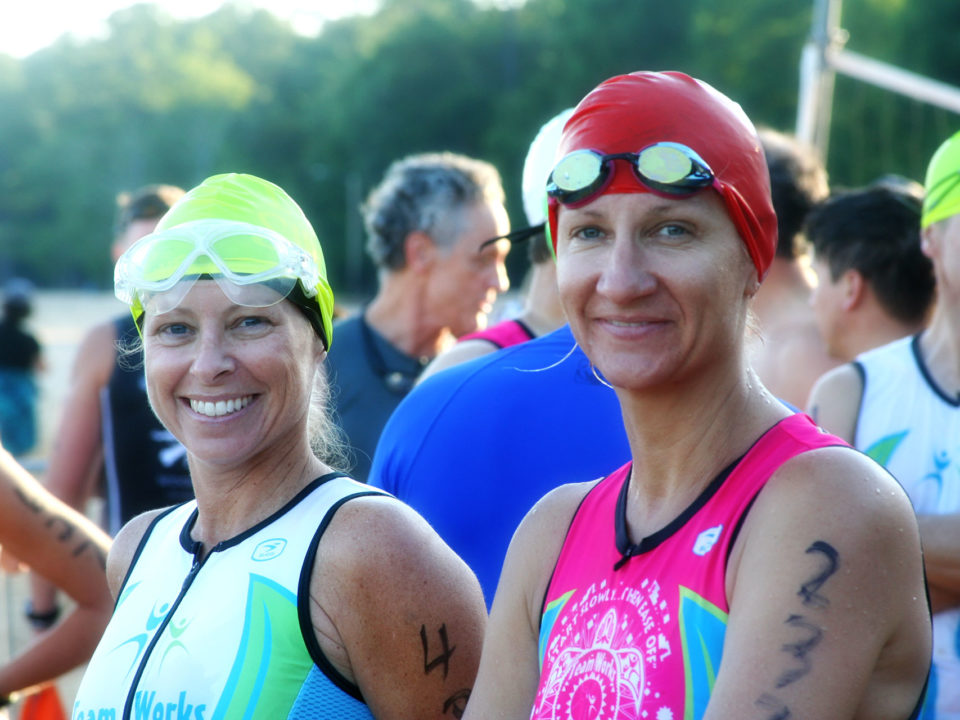The 4 C’s of Triathlon

Coach Michelle Race Day Athlete Tips 3 & 4 Video
May 26, 2018
Help! I want to do a triathlon where do I start?
May 30, 2018COMMITMENT
COMMITMENT means that being a triathlete is part of your identity- that engaging in triathlon is meaningful to you as an athlete, that it provides enjoyment and satisfaction. So COMMITMENT is connected to your dreams, your desires, and your motivation. It means that you understand the sacrifices needed and are willing to make them. Only when you are COMMITTED can you be successful at your chosen level, whether it is to strive for the Olympics or be the best you can be in your age group, or just to finish the race with a smile on your face. Regardless of your level, it takes COMMITMENT to go out and train, to get in the appropriate rest and recovery, to eat the ‘right’ nutrition, to stay away from drugs or other temptations that may impair your performance. In order to sustain COMMITMENT, it is important for the athlete(or the coach AND the athlete together), to know what will foster it and what will undermine it.
CONFIDENCE
When we are CONFIDENT we can find the right balance between the demands of competition or training and our response capabilities. CONFIDENCE has a lot to do with having a positive attitude, a positive self-image, and carrying yourself in an effective manner. CONFIDENCE doesn’t mean that you never have doubts or worries, but rather that you understand how such thoughts and emotions might influence you and how you will work with them effectively. The CONFIDENT athlete is very deliberate in his/her preparation, very disciplined in every area (training, recovery, nutrition, etc.) and sets specific, realistic and challenging goals. Thorough preparation is a hallmark of a CONFIDENT athlete. Self talk is POSITIVE, instructional & motivational. A CONFIDENT athlete is always persistent in the face of obstacles.
CONCENTRATION
Competing successfully in a triathlon, whether it is Sprint, Ironman, or any distance, requires a considerable amount of CONCENTRATION. CONCENTRATION is the ability to focus on the immediate task at hand—Swimming: components of the swim motion-reaching, gliding, mid-pull with power and vertical forearm, finishing at the hip. Biking: quick cadence, consistent pedaling, aero position. Running: stride length, quick cadence, foot placement, upper body relaxed and rhythmic breathing. Triathlon, whether in competition or training requires long and continuous CONCENTRATION on the task at hand. Learn to recognize distractions (both internal & external). What is distracting for one might not be distracting for another. Be aware of possible distractions or triggers and use your positive internal self talk to stay on track. Anxiety or fatigue can disrupt CONCENTRATION. Get yourself back on track by focusing on what is important right now— get to the next swim buoy, slow down your breathing, get to the next mile marker, etc. Be aware of possible distractions (usually out of your control), practice relaxation and positive imagery techniques. Envision what it feels like when your goal is accomplished, crossing the finish line, as you tackle the challenge you set for yourself.
COMPOSURE
Competition is an emotional experience. These emotions can range from anxiety to elation and everything in between. Emotions can sometimes hinder and sometimes help the competitive effort. COMPOSURE is about self-control. It is about being in charge of yourself, understanding that as an athlete you don’t always control what happens to you but you certainly can learn to control how you respond to what happens to you, which puts you back in the driver’s seat. Focus on what you know you can do and not what you think you can’t do. Tell yourself you have put in the training time, you’ve mastered the mechanics and you will not let outside distractions influence your CONFIDENCE, your COMMITMENT and your CONCENTRATION.
NOW YOU ARE READY TO RACE!


